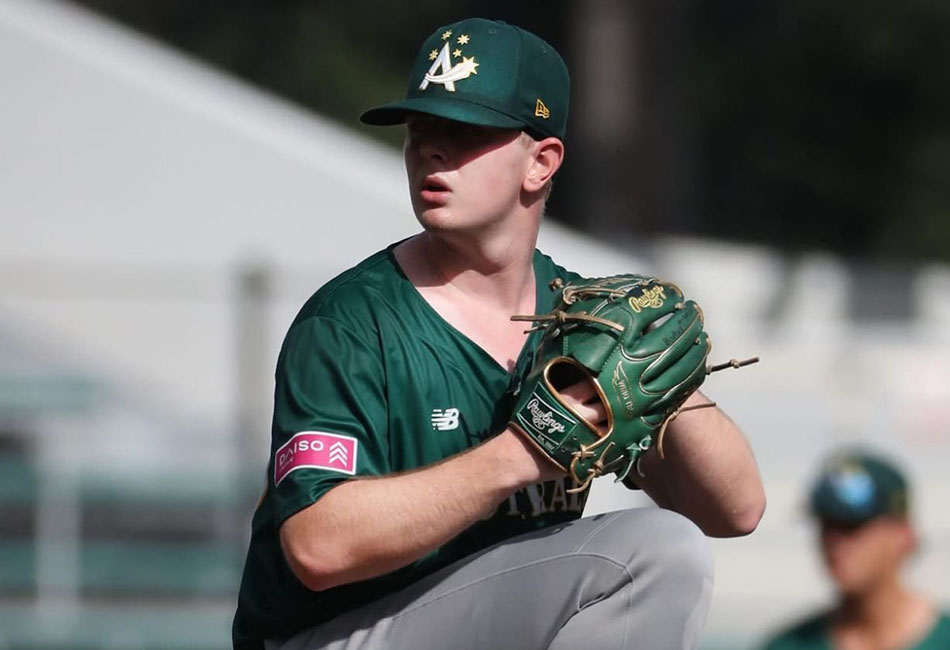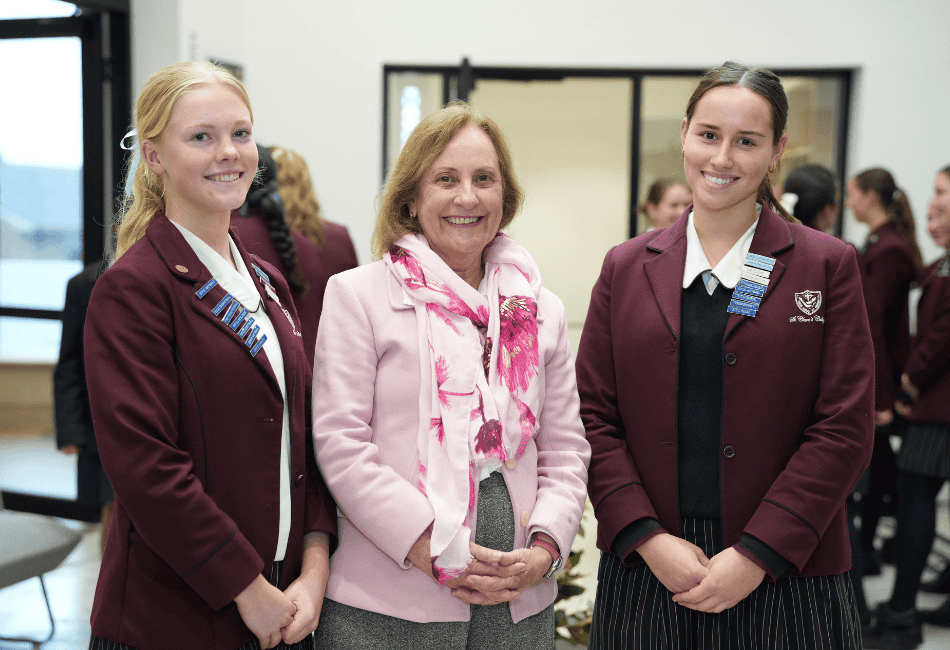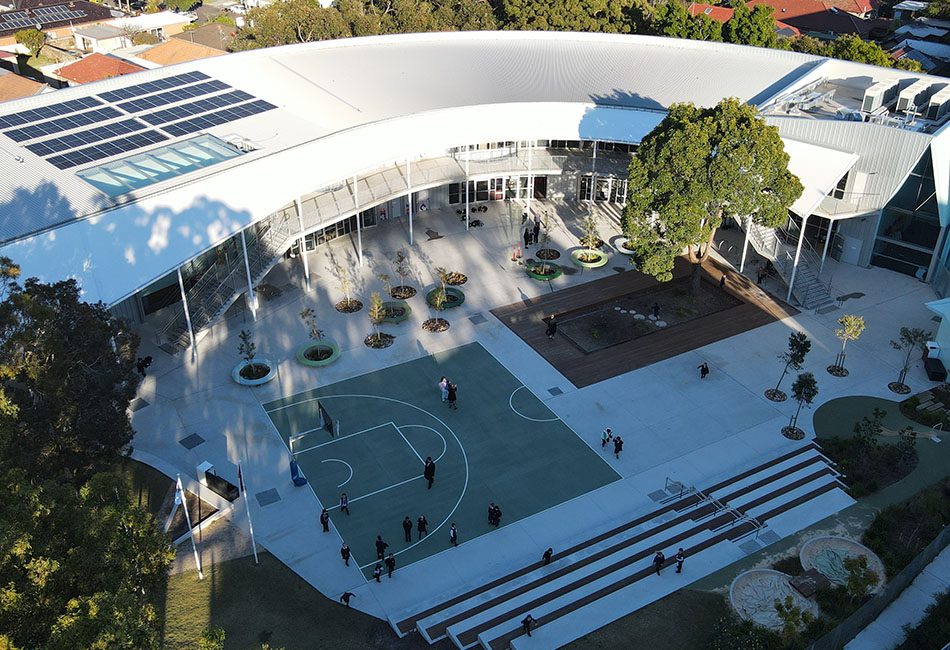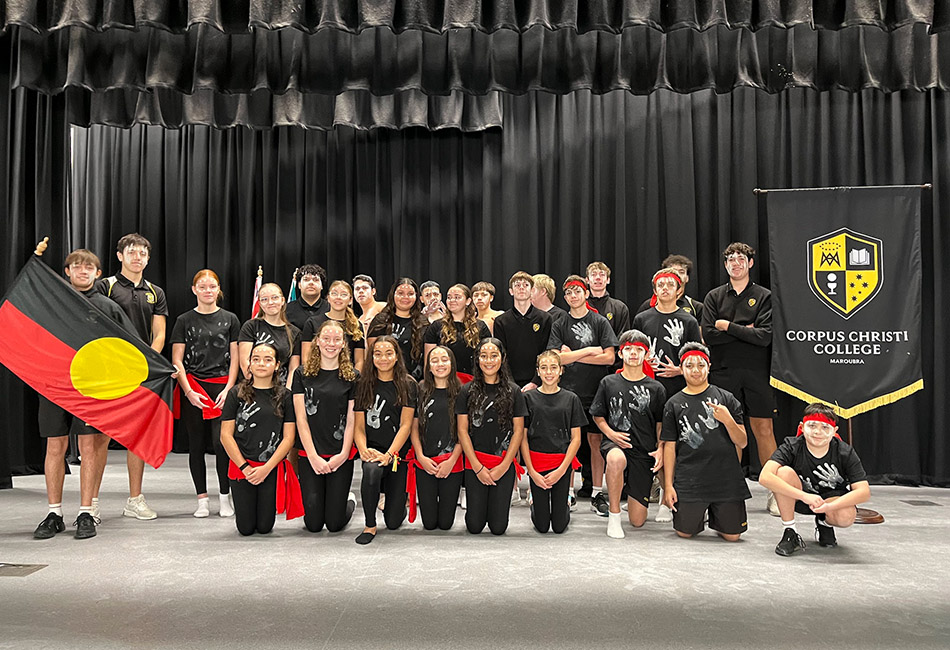May 20 is World Bee Day and a perfect time to reflect on the importance of pollinators in all our lives.
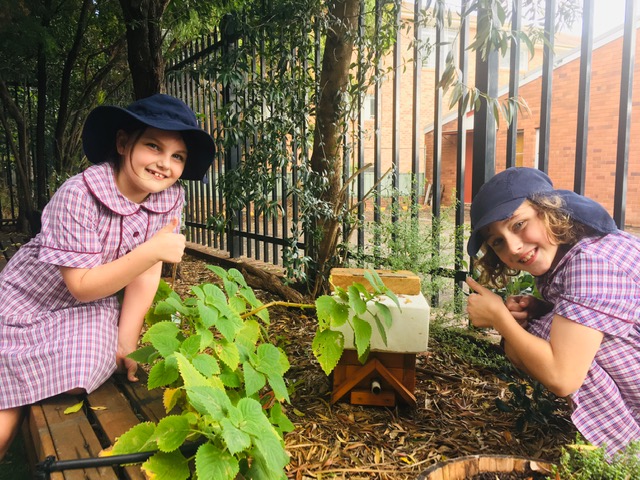
Year 2 students Alena and Greta in front of the Bee Hive
Six months after receiving their playground beehive St Joseph’s Catholic Primary School Oatley is abuzz with Australian native stingless Bees – double in fact.
And the school’s junior beekeepers have since become passionate bee advocates.
“Bees are important because they help to pollinate,” explained Year 1 student, Alex Moroz.
Luca Pirrello, also in Year 1, said: “Bees carry the pollen and some of it falls off.” Year 6 student, Issac Assaly, added: “This helps more flowers and vegetables to grow.”
About the beehive
Funding for the school’s beehive and a bush tucker garden was given to the school after Year 5 students wrote to NSW Premier Gladys Berejiklian and Oatley state MP Mark Coure.
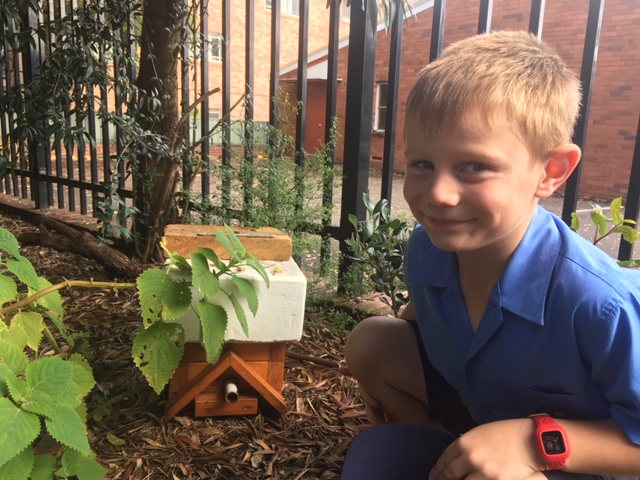
Laurence Gardner Year 1, in front of the Bee Hive
“The purpose for having the beehive was to assist with the rejuvenation of the land after our devastating bushfires,” the school’s Inquiring Minds teacher, Kate Blackman, said.
“Other colonies will grow from this hive and establish elsewhere.”
“Since the bushfires, the flowers need to rejuvenate so the bees help with pollination; this increases the growth” – Elees Hilder
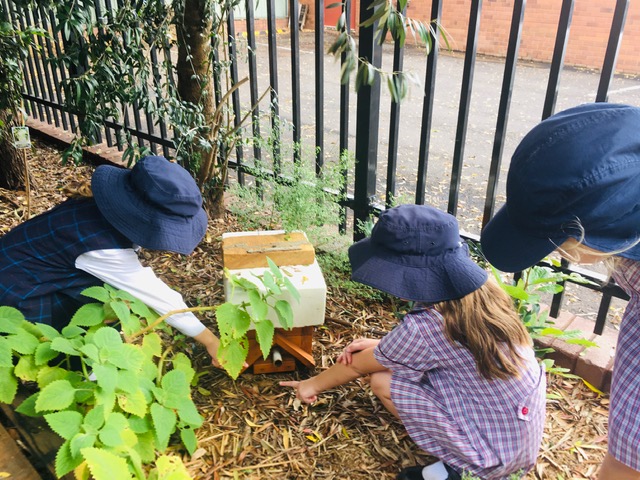
St Joseph’s Oatley Students in front of the Bee Hive
Ms Blackman said the inquiring minds program has also helped students gain a better understanding of the importance of cross-pollination and the impact it has on plant growth.
As part of the program students designed the beehive, “ultimate pollinating outfits” and experimented with different colours to attract more bees.
“The hive is thriving!” – Kate Blackman
“The hive is growing stronger each week and the worker bees are busy preparing for the cooler months ahead,” Ms Blackman said.
“The bees are very self-sufficient and, from observation, enjoy being in a protected and undisturbed setting of the playground.”
Students and staff tend to the beehive during their lunch times, pruning any overhanging branches or leaves that may obstruct the entrance to the hive and placing a protective cover over the hive if heavy rain is expected.
“We are all beekeepers at St Josephs,” said Ms Blackman.
To help celebrate World Bee Day, the school’s student representative council is organising for students to dress in black and yellow, in support of their school bees.
Six Tips for a Bee-Friendly Garden
- Select plants that flower right through the year
- Select flowers with a variety of colours and shapes
- Plant groupings of the same flower species
- Select plants that provide nesting materials for the bees
- Avoid using insecticides in your bee-friendly garden
- Build a pollinator box


